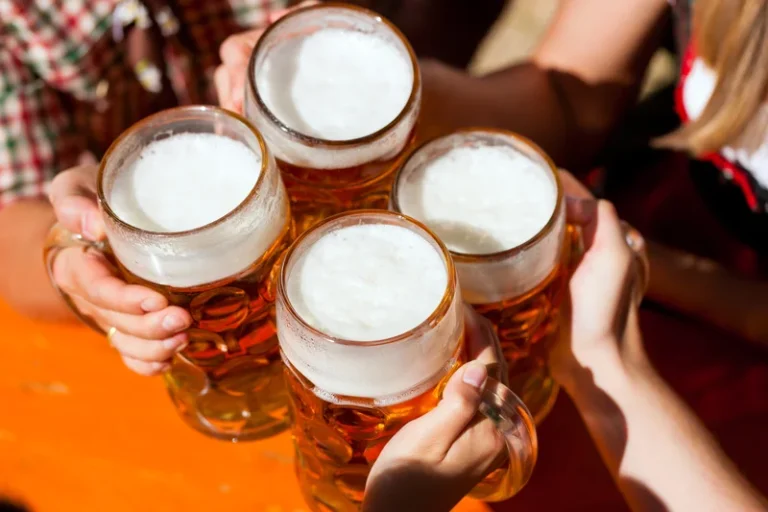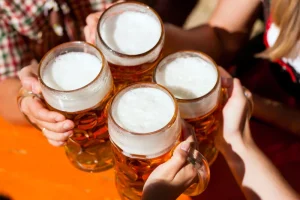
Facial flushing and excessive sweating are common symptoms of alcohol intolerance. Allergy tests can help determine if alcohol is the cause of these reactions. Even just one drink can cause night sweats, and they can be particularly common in individuals with alcohol use disorder or those who binge drink 5. Alcohol has a profound effect on the body's central nervous system, which in turn can influence various physiological processes, including regulation of body temperature.
Benefits of PA Rehab Centers

Alcohol consumption can lead to an increase in body temperature, which can trigger sweating during sleep. Additionally, alcohol can disrupt normal sleep patterns, leading to night sweats as the body tries to regulate its temperature. It's important to note that night sweats can also be caused by other factors such as hormonal changes, medications, or underlying health conditions. It's important to note that night sweats can be caused by various factors, and not everyone who consumes alcohol will experience this particular symptom. However, if you consistently experience night sweats after drinking alcohol, it may be worth exploring the underlying causes and considering lifestyle adjustments.

Alcohol Detox Process
If your night sweats are a result of alcohol withdrawal, you could also try cutting down on how much you drink. These symptoms are particularly common among individuals with Alcohol Use Disorder (AUD). As blood alcohol levels rise in the interim, several different effects of intoxication will become more evident. See your doctor if you’re not sure what’s causing your night sweats or if drug addiction treatment you have accompanying symptoms. Getting night sweats from alcohol consumption may indicate symptoms of a drinking problem.
- Alcohol withdrawal can be dangerous and potentially life-threatening if not properly managed.
- You’ll meet millions of fellow Reframers in our 24/7 Forum chat and daily Zoom check-in meetings.
- Counseling and therapies then address the psychological addiction for lasting recovery.
Hangover, Hot Flashes, and Sweating
People who suffer from night sweats may experience heavy perspiration during sleep. They may feel hot, stuffy, or restless at night.2 Often, people who suffer from night sweats wake up with damp bedding. Discover what state-funded drug rehab offers, from accessibility to treatment options and their impact on recovery. But sometimes, alcohol can cause night sweats when you haven’t been drinking, which can be a symptom of a more severe problem.

Drug and Alcohol Detox: What Is the Difference?
You may sweat due to the heat if you may be drinking in an outdoor environment or under the sun, of course! Besides this, if you’re drinking while seated in a crowded, poorly ventilated place, you might also feel overheated. The hypothalamus (a region of the brain) is responsible for controlling the nervous system and body temperature. Alcohol impacts the brain and changes body temperature, and one may sweat due to this. According to Brown University, up to 50 percent of adults of Asian descent have difficulty metabolizing alcohol, due to inactivity of one of the enzymes needed by the liver to process alcohol. This can lead to facial flushing, dizziness, rapid heartbeat, headache and nausea.
Do you sweat after drinking alcohol? 7 reasons why it may happen
This guide covers policy details, in-network options, preauthorization, documentation, and appeals for coverage success. American Addiction Centers (AAC) is committed to delivering original, truthful, accurate, unbiased, and medically current information. We strive to create content that is clear, concise, and easy to understand. A small amount of alcohol is broken down in your stomach lining, but your liver metabolizes most of it. Most of the alcohol you consume is broken down into byproducts through metabolism within your body.
- This is because your body has difficulty breaking down the alcohol you consume.
- It is recommended that individuals undergoing alcohol detoxification take time off from work or other responsibilities in order to focus on their recovery.
- While occasional night sweats are normal, persistent night sweats can be a symptom of an underlying medical condition or lifestyle factor, such as sweating at night after drinking.
They may suggest lifestyle changes, such as reducing alcohol intake further or implementing specific sleep hygiene practices to improve your sleep quality. When it comes to understanding the connection between alcohol and night sweats, it's important to explore how alcohol impacts sleep quality and body temperature during sleep. Alcohol can have a direct impact on the body's ability to regulate temperature, which may contribute to night sweats. When consumed, alcohol acts as a vasodilator, causing blood vessels near the skin's surface to widen. This dilation leads to increased blood flow and heat loss through the skin, potentially resulting in a sensation of warmth and subsequent sweating.

In some cases, addressing the root cause of night sweats may require additional interventions, such as medication or therapy. Discover the best rehab centers in NJ for effective recovery and personalized addiction treatment options. It can lead to hypothermia by alcohol makes me sweat impairing the body’s core temperature regulation, especially in cold conditions 1.
- Speak to your GP for a medical opinion on the best next steps for you.
- Explore Chris Herren’s “Rebound” inspirational talk on drug addiction and the road to recovery and resilience.
- In the context of alcohol intolerance, night sweats occur as a direct reaction to the toxic effects of acetaldehyde.
- If drug treatment programs don’t seem to help my daughter, explore supportive measures and effective resources.
- Whatever your goals, it's important to be specific and measurable.
- Fortunately, there are several practical steps you can take to manage and reduce the severity of these symptoms.
- During an assessment, the clinician will evaluate you based on whether you have experienced certain criteria within the last year.
- Your doctor may prescribe medication or suggest lifestyle changes.
- Discover the difference between outpatient and intensive outpatient programs, key to informed recovery decisions.
If someone has developed alcohol dependency, they may experience excessive sweating, hot flashes, and night sweats if they stop drinking. Psychological factors, such as stress, anxiety, or post-traumatic stress disorder (PTSD), can contribute to night sweats, particularly when combined with alcohol consumption. Alcohol is often used as a coping mechanism to alleviate stress or anxiety, but it can paradoxically exacerbate these symptoms and disrupt sleep patterns, leading to night sweats.

